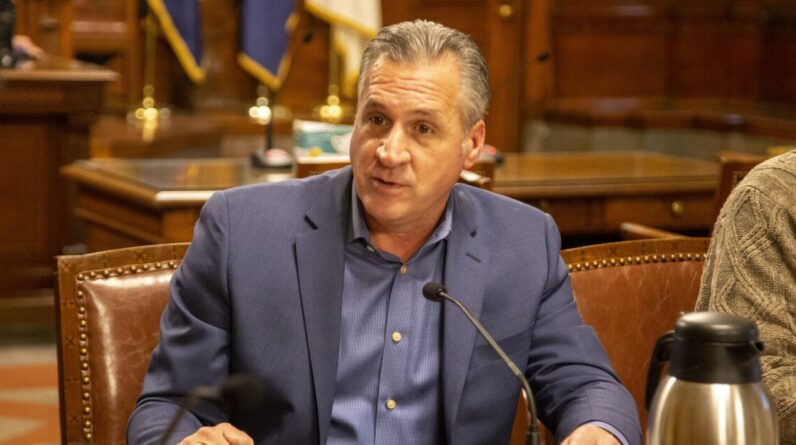
The City of Pittsburgh this week took steps to resolve a long-running legal dispute involving its police bureau and to invest in technology that could provide evidence in similar disputes in the future.
Without discussion Wednesday, the council approved a $275,000 settlement to settle a lawsuit filed after a 2020 protest in East Liberty resulted in nearly two dozen arrests and conflicting accounts of the conduct of police and protesters .
The lawsuit was filed on behalf of six adults and a child weeks after the June 1, 2020 protest, one of countless demonstrations across the country that followed the death of George Floyd at the hands of police in Minneapolis. The lawsuit accused city police of “escalating a peaceful protest into a scene of pandemonium, panic, violence and bloodshed,” and said police arrested protesters even as they were trying to leave.
The city responded by saying officials “take precautions to ensure the safety of those involved in organized demonstrations and protests.” But he said that after “there was destruction, property damage and violent behavior” among protesters, officers “used their discretion when force could be used.”
Under the terms of the settlement, each of the plaintiffs will receive $19,533.54 of the $275,000 settlement, with the balance of the money dedicated to legal fees.
Some attorneys for the plaintiffs did not return calls, while others declined to comment until the settlement is official.
The Council is due to take a final vote on the deal next week. But Wednesday’s move came as no surprise.
Court records first revealed a resolution was in the offing this spring, and the council discussed it Monday during a closed-door executive session, a routine procedure when legal action is pending.
The deal certainly represents a comparative bargain for the city.
According to a recent estimate, these settlements have cost about $80 million across the country so far. Philadelphia alone announced a settlement in March for more than $9 million in legal actions stemming from the police response to protests there.
Still, the case highlights the financial stakes of mistrust between the police and the community. And a day before the settlement vote, the council approved a plan to spend $39.9 million on new technology, including body cameras and vehicle cameras for use by police that could figure in future litigation .
The original contract price was more than $45 million, a sum that gave council members pause last week. The team’s maker, Arizona-based Axon Enterprise, enjoys near-total dominance in the field.
And the new cameras offer several advantages over those currently used by police: Most importantly, they turn on automatically rather than requiring officer action; a change they say will provide a more thorough record of police and civilian behavior.
Still, when the contract came to council last week, “we were all a little surprised,” Councilman Anthony Coghill said. “That’s a lot of money.”
In response, Coghill and Public Safety Director Lee Schmidt laid out slightly different terms for the deal ahead of Tuesday’s meeting, reducing the total number of cameras in the contract from 950 to 900. Currently, the police force of the city is approximately 800 agents of the 900 budgeted. , meaning the city could reduce the purchase without affecting access to the technology.
Coghill praised Schmidt for “getting it done[ten] on the phone last night…work[ing] make a new deal [and] know[ing] approximately $6 million.”
It is not clear that the savings will be that much. Last week, Police Chief Larry Scirotto said the city wouldn’t pay for the cameras it didn’t end up using anyway, meaning the cost may never have reached $45 million in the first place.
But the new version of the contract presented to the council last Tuesday had a cap of $5 million less than the original. The lower-cost cap clearly appeased some aldermen, and others said the cameras could pay for themselves in future lawsuits like the one he’s settling.
“We need to be able to … demonstrate a solidly recorded chain of evidence that will stand up in a court of law to justify the kinds of actions we take,” Councilman Bruce Kraus said shortly before the vote. “Especially in a post-George Floyd world where we’ve all been challenged to rethink policing and what protection and service really look like.”
However, even with more footage, ongoing controversies about the police seem inevitable. Plaintiffs from the June 2020 protest included numerous video clips in their complaint, only to have the city question whether the footage accurately reflected the larger context of the day’s events.
The cameras can also be tools of surveillance, said Councilwoman Deb Gross, who feared the new generation of Axon equipment would improve the ability of city officials to monitor citizens.
“It’s important for us to have this chain of evidence [and] the public demanded body cameras to protect their rights,” Gross said. But he said he would talk to outside experts about the privacy implications of the new technology.
“We need to continue this conversation,” he said, about “where we’re crossing the line between protecting the rights of our residents and infringing on the rights of our residents.”
[ad_2]
Source link





